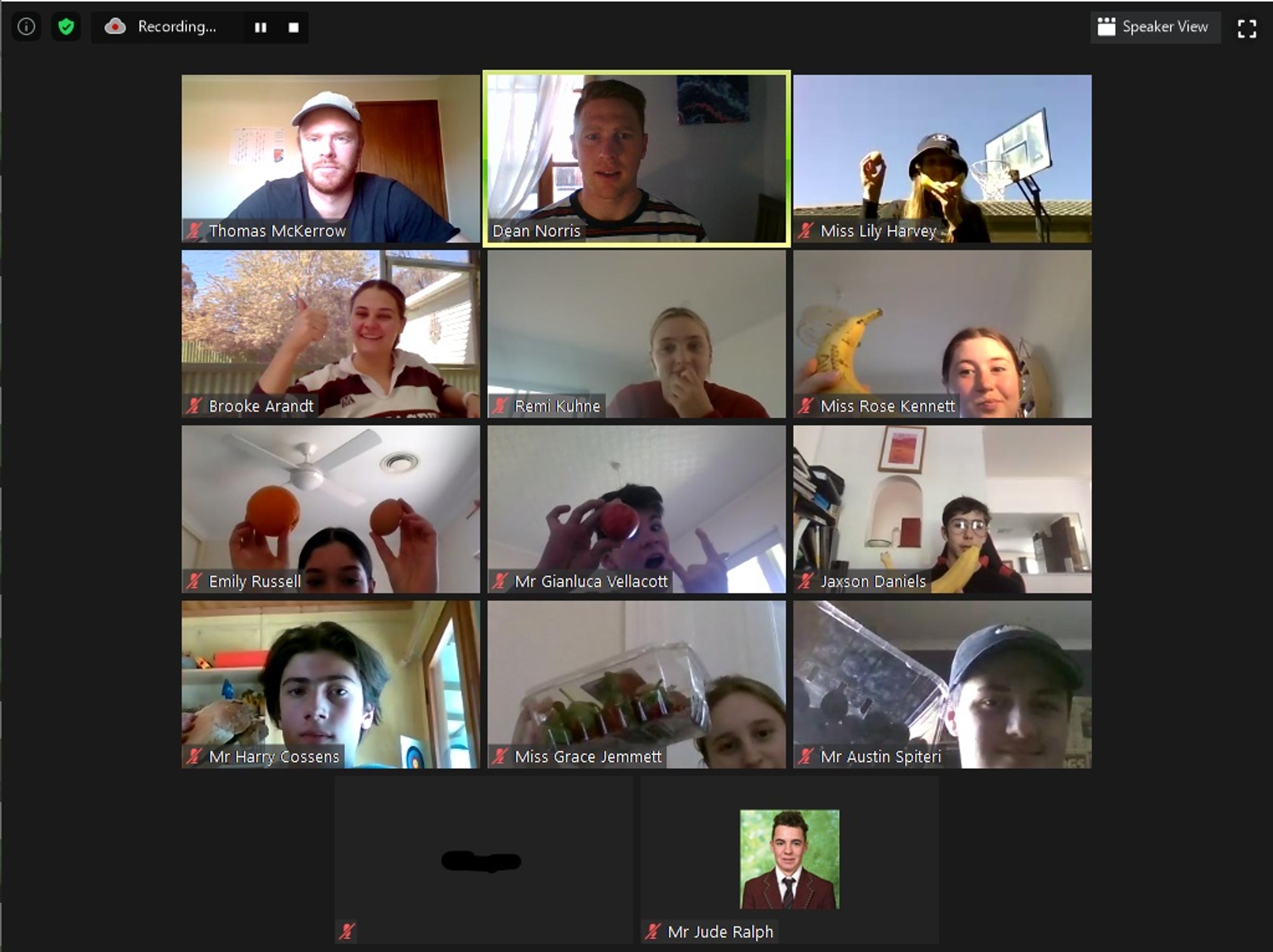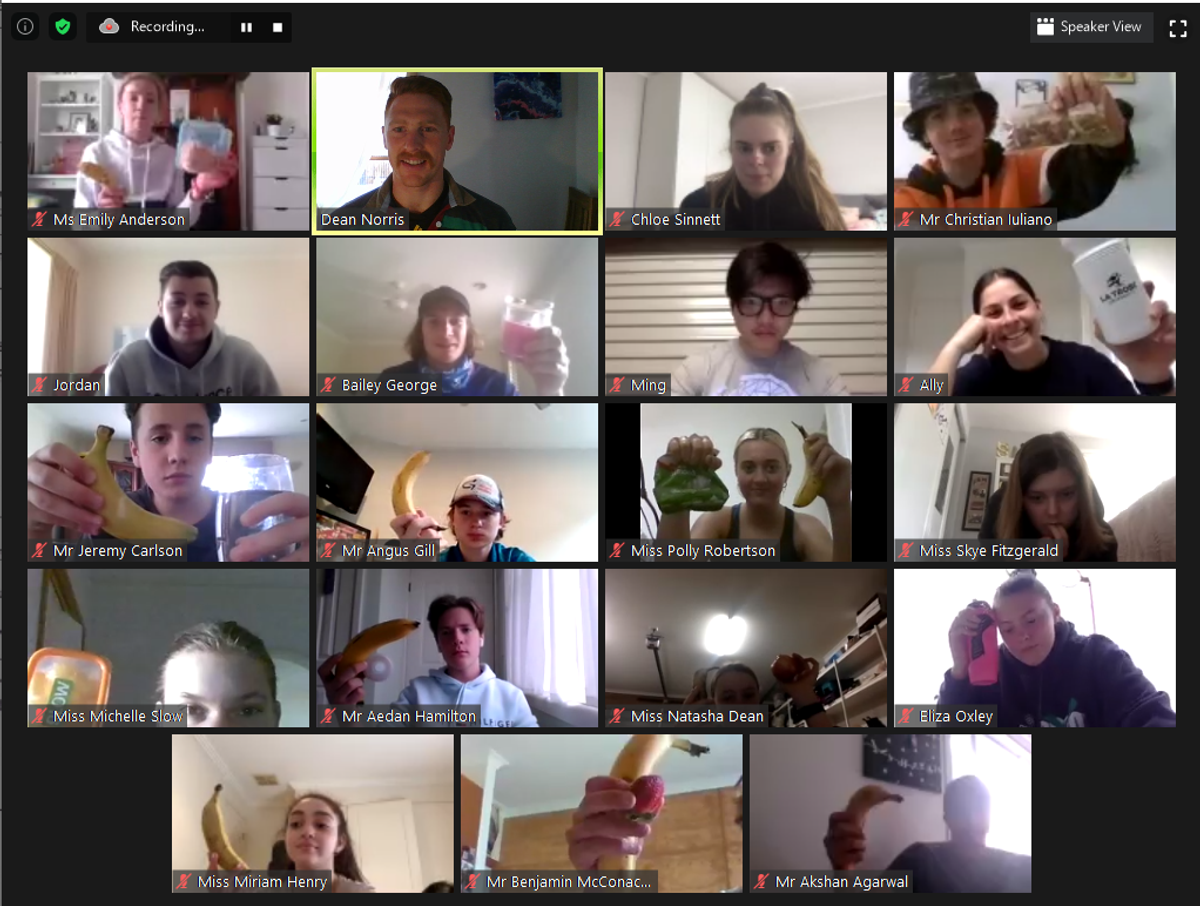Sports Excellence Program

Most people are aware that getting enough sleep and eating a healthy diet can have a positive effect on our children’s long-term health and development. But to what extent do these factors play a role in our sporting and academic performance? And how great an impact can adjusting our sleep routine, consuming an adequate amount of nutrients and adopting good eating habits for our training load, enhance our performance and wellbeing?
At a time when competitive sport has come to a halt, team training is non-existent and gyms, pools and stadiums are all closed, the students of the Year 9 and Year 10 Sports Excellence Program have still been hard at work. Following our first lockdown in Term 2, the students were asked to report on the number of training sessions they were completing pre-lockdown and to compare that with the number of sessions they completed during lockdown. We found a significant reduction in the amount of training students completed during the first lockdown (greater than 50% of the class had cut their training load in half), and set out to achieve a new goal for the second lockdown:
To maintain the same number of sessions per week throughout the second lockdown, as we were completing before restrictions.
Seeing this lockdown as an opportunity to focus our training on what is in our control gave our students a sense of determination in approaching the new restrictions. We also coupled this goal with learning about ‘Recovery’ with Mr Jamie Tarrant (Accredited Exercise Physiologist and Sports Scientist) to help our students to understand how we can consider elements outside of the training arena to improve our performance. Students were set various challenges throughout this period, each addressing a new topic from: Recovery, Sleep and Nutrition, and were taught about the value that applying their understanding of these topics could have on their wellbeing. The following quotes guided our lessons:
‘Rehydrate, Refuel, Repair, Relax’
Recovering physiologically and psychologically from training and competition was the focus of our first topic, including the benefits of sleep, nutrition, foam rolling, active recovery and mindfulness/meditation. Students learned that an imbalance between exercise and recovery would result in fatigue and reduced performance. They were then challenged to complete ‘Contrast Water Therapy’ in which they were expected to alternate in the shower between 1 minute of cold water and 1 minute of hot water for 4 minutes post-training to enhance recovery. Feelings of invigoration, freshness and reduced soreness (and a little bit of shocking the system!) were just some of the feedback received about this process.
‘Sleep is the single best thing you can do to reduce recovery time, fatigue and injury risk’
Students learned about positive sleep habits and how making changes to their bedtime routine could improve immune defences, memory, alertness, sporting/academic performance, reduce injury risk and can help to build muscle mass. They also learned about the effect that using devices 2 hours before sleep can have on delaying the production of melatonin (sleep hormone) and ultimately keeping them awake for longer. Challenges involved not using mobile phones 2 hours before sleep time, setting and sticking to a consistent bedtime and wake-up time, and changing their phone lighting to take away the reward our brain receives from looking at our phones.
‘You can’t outrun a bad diet’
‘Nutrition’ was the final topic of focus with an emphasis on the importance of nutrition for optimal growth and development, in addition to improving recovery and performance. The effects of a balanced diet, and one that meets the specific needs of an individual’s training/performance schedule, is critical in refuelling and rehydrating the body and boosting adaptation from the training session. Students learned about a variety of nutrients, and sources of food containing these nutrients, that can help to maximise and support their growth and development. The students were challenged to bring a carbohydrate and protein source to consume immediately post-exercise to provide their bodies with the nutrients it needs to capitalise on growth.
We are certainly very lucky and grateful to have had this opportunity with Mr Tarrant during isolation and would like to thank him for teaching our students some valuable lifelong lessons and practical ideas to support the athletic development and wellbeing of our students.
“Recovering effectively is one of the most critical determinants in sport success – and is probably one of the key areas of opportunity to improve performance in youth”

